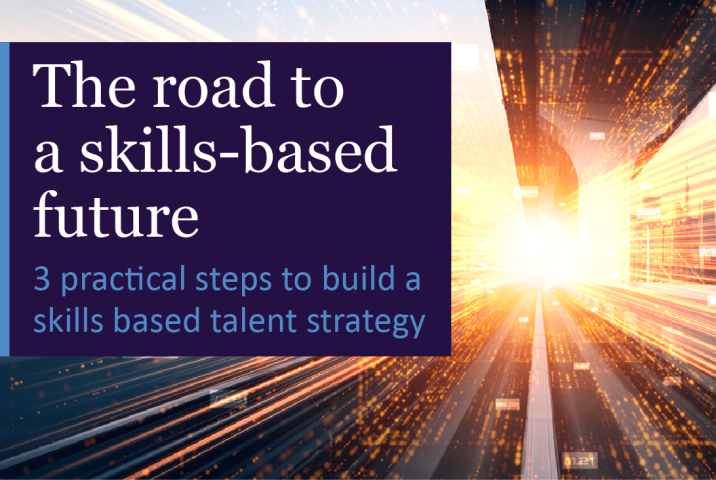Flexibility, simplicity and dexterity: the foundations of success as business moves forward
23 October 2020 — While there may be the odd glimmer of hope for businesses as some global locations ease parts of the restrictions implemented under lockdown measures, we are still very much in the midst of a scenario the like of which we have never seen before. The events that have unfolded this year have been unquestionably challenging, at times dis-heartening, and regularly frustrating. And yet, with all the hardship, some positives have emerged, the most obvious of which has been the acceleration of the transition to remote and flexible working on a global scale. The fact that everyone has had to adapt at the same time has certainly helped build empathy, flexibility and understanding.
As CEO of a global business that supports international firms with talent acquisition and management strategies, I have the privilege of working with teams that have great visibility into the operations of a diverse array of organisations that cover all sectors and geographies. With this valuable insight, we can start to see commonalities in how organisations are thinking about their futures and the impact on the world of work. Here are the key learnings we’ve witnessed both within Alexander Mann Solutions and the companies we partner with.
A trend we’ve certainly noted is the number of businesses going “back to basics”. The corporate world as we know it today is not in a position to return to the way things were before. The knee-jerk reaction as restrictions ease may be to reinstate business as usual as quickly as possible to mitigate the impact the global crisis is having, but in the longer term this may prove counter-productive. It’s tempting to fall into the trap of making swift assumptions about how the world of work has changed, but the truth is that we may not yet know. It will take time to know what “normal” now is. As much as we are craving optimism and stability, financial experts believe the volatility in today’s markets will continue throughout the rest of this year and into next. However, as the last six months have shown, things can change at a moment’s notice, so this prediction may as well. And, of course, we can’t overlook the fact that the pace of recovery will be different depending on the local response to the crisis.
No matter the size of your business, now is truly the time to go back to the drawing board and honestly review what your company looks like. Only once this is clearly defined can leaders assess what they want the organisation to be known for in the future—rest assured, it probably won’t follow the same path you had envisaged 12 months ago. And that’s not necessarily a bad thing.
This re-evaluation mode will strip many business plans right back to a simpler focus, but I’d argue that simplicity is key during these uncertain times. We all need to be really clear about the true value that our organisations can offer to our customers and not over-complicate. With that simple and clear focus, we can more effectively align our organisations to what is required in the future to be as value enhancing for our customers as possible.
When change is inevitable, embrace it
No matter what industry your business operates in, at a time of crisis the lessons of other sectors should factor in to your survival plans. There’s absolutely no question, of course, that some sectors have fared better than others. The food, hospitality and airline sectors have experienced the greatest setback financially as many companies were forced to downsize or close, and these businesses may take years to rebound. In comparison, many pharmaceutical companies have benefitted, especially in countries that are ramping up efforts to create a vaccine. And with so many people working from home, internet usage has spiked considerably, benefiting some of the high-quality growth companies in the technology space, particularly virtual communications firms.
What all sectors have noted, however, is the increased digitisation of services. While this might have been a previous trend, its pace has certainly accelerated out of simple necessity over the last few months. Across life sciences, for example, many aspects of businesses are being digitised, from research and development through to sales and patient care. And brands are repositioning themselves in line with this. Take our client, Baker Hughes, as a case in point. The business has repositioned itself as an “energy technology company” to adapt to the evolving market.
It’s clear that those that have been able to adapt their day-to-day operations through technology and embrace digitisation as an enabler of change for their firm have fared the best. While every sector is different and this is not feasible for all, those that can should be looking at how tech can improve their efficiency.
Accepting the new face of the workforce
One of the most notable changes that this landscape is creating lies in our talent bases. The pandemic has accelerated some trends that we were already seeing in the talent acquisition space. The convergence of permanent and contingent talent strategies, for example, or the need for organisations to invest in the development of new skill-sets for their workforces. For effective Workforce Flexibility and Compliance, explore our solutions. This latter point will be particularly pertinent as people find themselves facing bleak career prospects and even unemployment. More candidates will be looking beyond their area of expertise for work, and this presents both an opportunity and a challenge for organisations.
As the world adjusts to the rapid changes brought about by Covid-19 the pace of digital transformation is only going to accelerate. Bearing in mind there was a technology and digital skills shortage before the pandemic, demand is likely to surge in the near future. Those businesses that are currently still able to grow and invest can capitalise on the current situation where layoffs, uncertainty and candidates seeking greater security has created a temporary opportunity to find and hire fantastic talent that may have been a real challenge just a few months ago.
But when the next “normal” arrives, it’s likely that competition for digital talent will increase. Identifying new hires based on potential and adaptability, rather than necessarily having the technical skills on ‘day one’, will become an increasing trend—one that will see more organisations having to invest in effective assessment tools.
Diversify talent pools
It’s clear as well that for some businesses to adapt, they are likely to have to diversify to either re-build lost revenues, move back to growth, or even survive. The key tool and proof of that diversification will be bringing people with different experience and skills into those organisations. And with the mass introduction of flexible and remote working practices, employers are no longer limited by geography when it comes to finding these people. What they will face, however, is a struggle to engage individuals who would not previously have contemplated those employer brands.
In the longer term, candidates will apply very different lenses to the businesses they decide to work for. If I were looking to choose my next employer today, I might consider how they treated their staff during this crisis, the likely volatility of their sector, their approach to flexible and remote working and how they view office environmental safety. As a result, organisations are going to need to re-think their messaging to the market, and position themselves carefully against what candidate pools prioritise in terms of importance.
Dexterity: the future of business success
The global crisis has certainly diversified the world of work as we know it and the workforce of the future looks set to be more fluid than ever. We’ve arguably moved beyond agility as a success factor for future-proof businesses, to dexterity, where entire segments of the workforce will be multi-skilled and regularly flex and shape-shift to capitalise on opportunities. And while we await the arrival of the new normal, the focus for business leaders should be on ensuring their organisations are thinking clearly and logically about the path ahead, aligning their talent strategies and building, re-shaping and optimising differentiated, agile and diverse workforces to drive their future businesses. That may indeed be what differentiates the next decade’s winners from those that don’t survive.
Originally posted 23 October 2020 in Business Express
More articles
AMS launches Ethical AI in Talent Board
AMS launches Ethical AI in Talent Board to ensure fair, unbiased AI use in recruitment. Experts will guide ethical AI adoption across the talent lifecycle.
The road to a skills-based future
Learn how to reframe talent for the future. Don’t miss the opportunity to unlock organizational potential and meet tomorrow’s challenges, starting now.
What is Contingent Staffing, and What Are the Benefits?
Learn what contingent staffing is and explore its benefits, from flexibility and cost savings to access to specialized skills.

Start your journey to True Workforce Dexterity.
Discover how we can help you build, re-shape and optimise your workforce.
Talk to us






